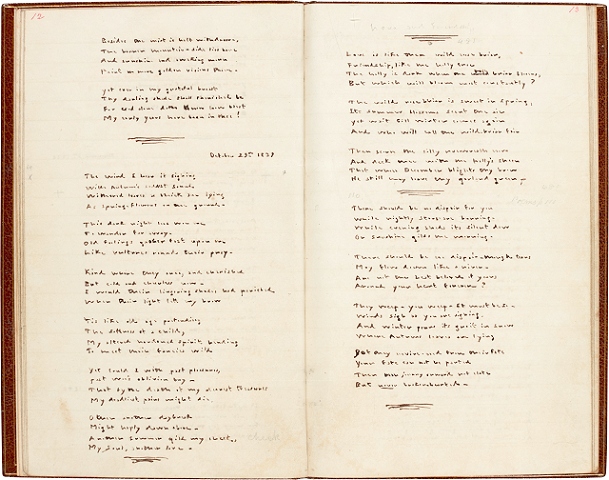A library set up in the 19th Century by the Rochdale mill owner has been saved for the nation after a campaign raised £15 million to buy it.
The collection known as Honresfield Library includes manuscripts by the Brontës, Jane Austen, Robert Burns and Sir Walter Scott.
This library was formed towards the end of the 19th century by William Law (1836-1901), a Rochdale mill owner, who created an exceptional collection of English and Scottish manuscripts and printed books that had the Brontës at its heart, as well as manuscripts in the hands of Jane Austen, Robert Burns and Sir Walter Scott and a significant collection of printed books.
It has been largely inaccessible for the last 80 years and was largely unknown to the public until their sale was announced by Sotheby’s in May.
The auction house agreed to postpone the sale to allow the Friends of the National Libraries (FNL) to try to raise the money to buy them.
They successfully raised £7.5 million with the country’s richest man Leonard Blavatnik matching that amount ensuring it won’t be sold to private collectors.
A spokesman for FNL said the library would now be known as the Blavatnik Honresfield Library in recognition of the businessman’s “great generosity”.
The literature found in Honresfield Library tells some of the most fabled stories in history.
It was assembled in the golden age of book collecting by self-made brothers and mill-owners Alfred and William Law. The brothers, both unmarried, lived together at Honresfield House, a large, plain two- story red brick structure, which had been built for William in 1879 at a cost of £5,068, near their factory in Rochdale.
The library took root in the aftermath of an era of Victorian progress and ambition. With a wave of country house building, newly rich industrialists and bankers were eager to display their wealth and taste and given the social status of book collecting at the time, a library was among the first thing to set about buying.
However, the Laws were not quite following in these footsteps.
The depth and style of their purchases marked them as sophisticated collectors clearly enthralled by their subject, acquiring literature by authors, including many female writers, that they loved who were writing 50 to 100 years before them – perhaps exemplified by the likes of Shirley, Charlotte Brontë’s story of the Yorkshire textile industry.
Indeed, the brothers had grown up less than twenty miles from the Brontë home of Haworth in the 1830s, amid the harsh beauty of the Northern English uplands during the Industrial Revolution. Experiencing the time and landscape immortalised by the Brontë sisters, these works resonated deeply with the collectors.
When Alfred died in 1913 (William having predeceased him), his chosen heir was his nephew Sir Alfred Law. This proved to be extremely fortunate for the fate of the library.
At a time when many other families faced unexpected estate taxes when recent heirs were killed in the trenches or died young of war injuries, Honresfield had a continuous owner until 1939. Alfred was also financially secure, which lessened the temptation to sell his uncles’ treasures as was the case with many similar libraries in the 1920s and 1930s.
In November 1939, Sir Alfred Law, who also remained unmarried, died and the library disappeared from public view.







